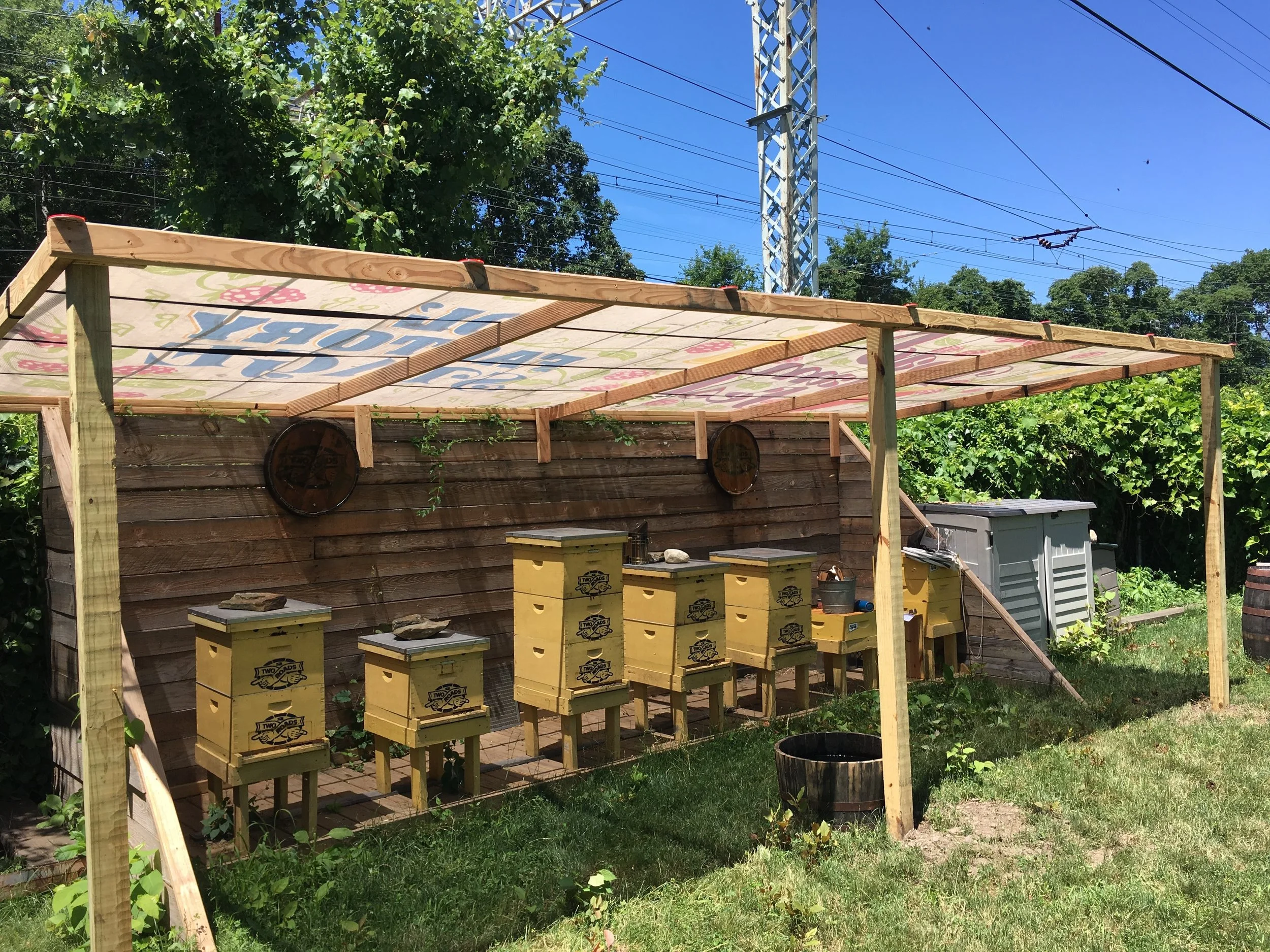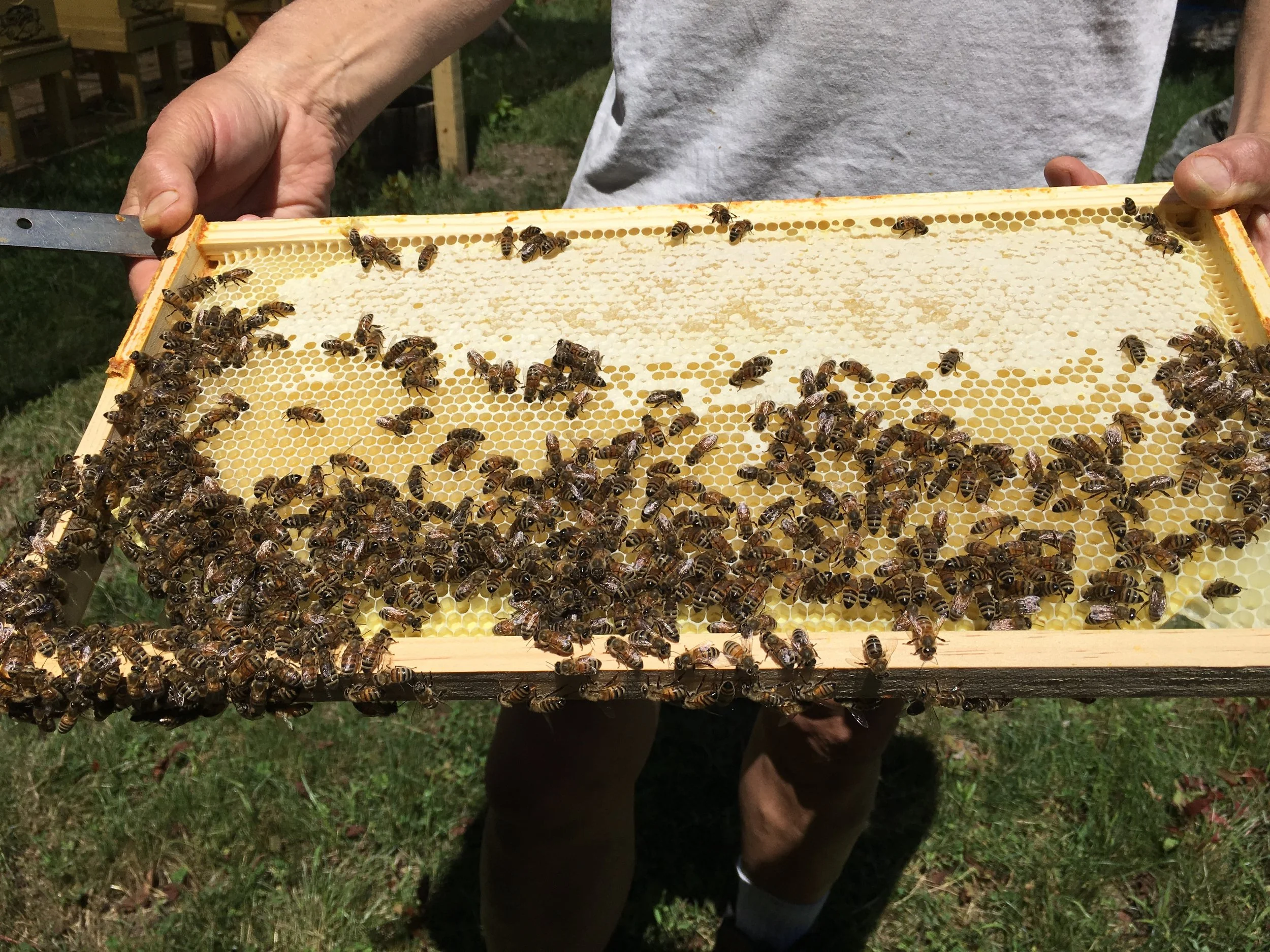Friday Froth: Bell's Brewery and Bees in CT
There exist, in the world of craft beer, "Brands" - the intentionally capitalized leading letter driving its way through the rising tide of breweries like the prow of an ocean liner on a cross-Atlantic voyage. In a young industry, these are the venerable breweries who have long since made it big. Common as gas station beer in their local areas, their names are still familiar outside their distribution footprint, like a band you know of, even if you can't name any of their songs. Russian River, Treehouse, New Glarus, Bissell Brothers, you know the type. In that list, and now Connecticut, is Bell's Brewery of Michigan.
For most of the country, seeing Oberon wheat ale in the cooler isn't noteworthy. Bell's already distributes in over 30 states, and is a little late to the fizzing reactor core of brewing in New England. In a vessel humming with the quantum detonations of summer sours, milkshake IPAs, and sparkling glitter beers, it's easy to get dazzled and look over an older beer recipe featuring a single, decidedly non-trendy hop. Sleep on Bell's Two Hearted Ale to your own detriment, because this beer made them a capital-B Brand for a reason.
The beer with the trout on the label pours a hazy amber under a single floating mass of white head. Expert use of a modern strain of the Centennial hop produces an aroma like berry picking in a field ringed by pine trees. On first sip there's a very round body and mouthfeel with a good foundation of malt and bitterness, livened up with the fruitier aspects of the hops. Two Hearted is just a very well executed west coast style IPA of the type it's slightly difficult to source these days, unfiltered in the classical sense (i.e. "air on a hazy day," not "immersed in a vat of Tropicana"), and deserving of its preceding reputation.
Locally, one of the only Big B Brands we have and other states are just getting is, say it with me: Two Roads. Yes, you can find their beer bus 12 packs everywhere, and they're making a new, fruited sour in their tanker truck series seemingly monthly, and... "And"... they quietly dropped a hyper local all Connecticut-made ale - down to the last grain and hop cone - this Sunday at the brewery. Biére de CT is made from 100% Connecticut ingredients: barley malt from Thrall Family Farms in Windsor, wheat from Rob Cormier in Farmington, and hops via Doug Weber's Pioneer Hops in Morris. The beer is fermented with a wild yeast strain collected at Two Roads' on-site garden in Stratford, which partially feeds the bees Two Roads keeps in their own apiaries, just feet away. The ale undergoes primary fermentation using the estate yeast variety, and undergoes secondary refermentation and bottle conditioning as it rests on a dose of their own honey in each bottle. (Rush over to the brewery and there may still be a few left as you read this.)
I stopped by the brewery for the Biére de CT release this Sunday, and was able to meet Ray DuBois, Two Roads' beekeeper, and proprietor ofBeeLove apiaries, with hive boxes strewn about Fairfield County. He cares for about a half dozen hives not far from the hop yard at Two Roads, and the respect he has for his many thousands of European honeybees is palpable.
"I don't waste a drop, not a single drop," he told a few of us, as he stood in the sun outside the bees' shaded canopy. "A single pound of honey takes four pounds of pollen to make, which represents two million flower visits. Your average summer bee has a six week lifespan, so that one pound is the life's work of 800 bees."
He removed a tray with seemingly about that many bees on it, and held the comb up right in front of us. The bees, relaxed and content to build, fill, and cap their combs, barely seemed to notice us at all. Wasps, which actually evolved first, well over 300 million years ago, are hairless, and thus not very useful for pollination, and don't make honey at all. Honeybees are relaxed, non-aggressive, and make a food containing sugar, protein, vitamins, and a mild antibiotic which keeps it shelf stable for centuries, and makes it useful in treating minor wounds. Plus, you know, they allow all agriculture on Earth to happen. Yay, bees.
"Honey bees are the only species to provide an essential service without harming another organism," was DuBois' final note as he accepted a cup of Biére de CT from a growler brought out to the apiary by a Two Roads staff member.
The nose of Biére de CT is all wild yeast, almost Belgian, slightly sharp and appropriately floral, considering the source. Take a sip, and the beer is smooth and pervasively wheated and bready, with a lingering sense of the honey. The sunny, translucent body has some weight to it, and a head of ultrafine bubbles cloyed to the glass in a sticky lace. A body tingle crept into my awareness after a full (half pint) pour of one of these, and did as much as a glance at the label to clue me into Biére de CT's 7.6% ABV. A little wild yeasty funk adds to the sensory experience, but the whole beer retains a subtlety more commonly found in abbey ales which have had their recipes refined over many years. Biére is a hell of a first effort, then.
From big B to little bees, there's plenty of options for the Connecticut beer drinker this summer.
See you out there.



























